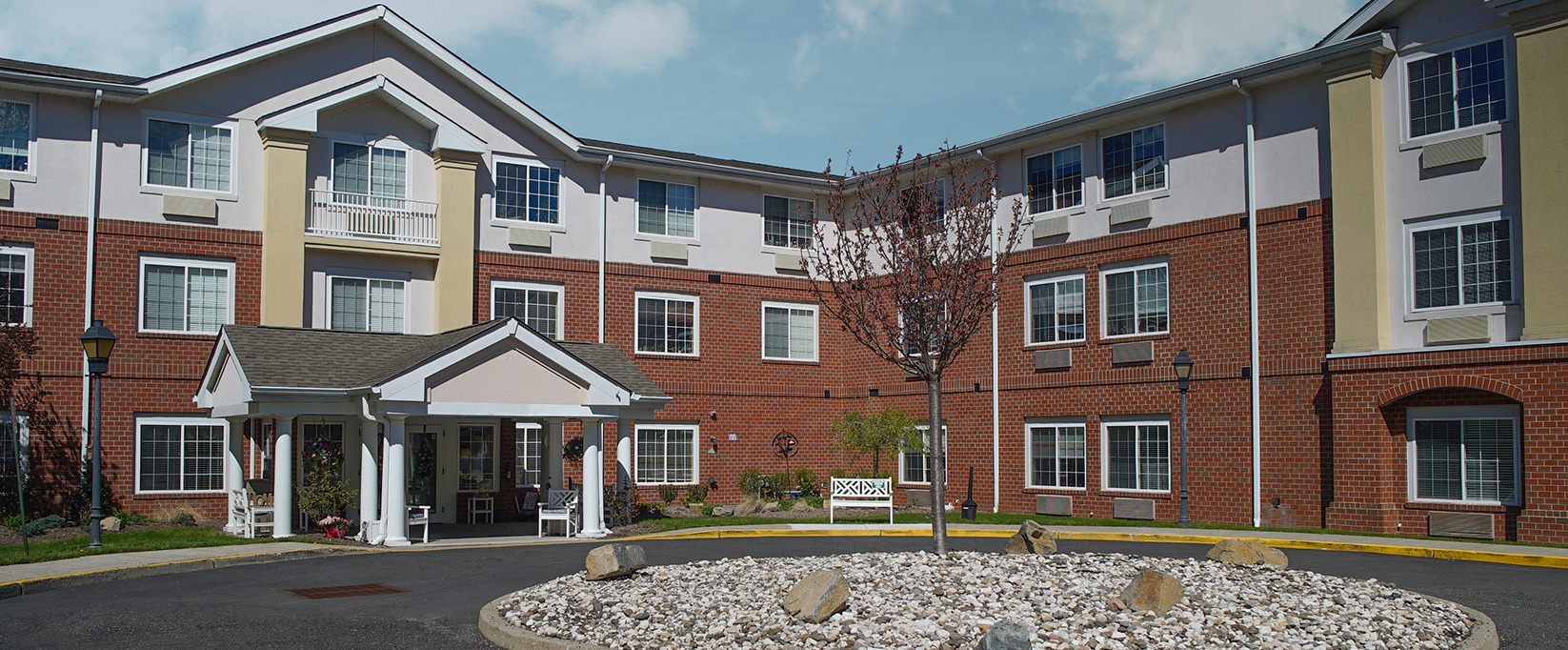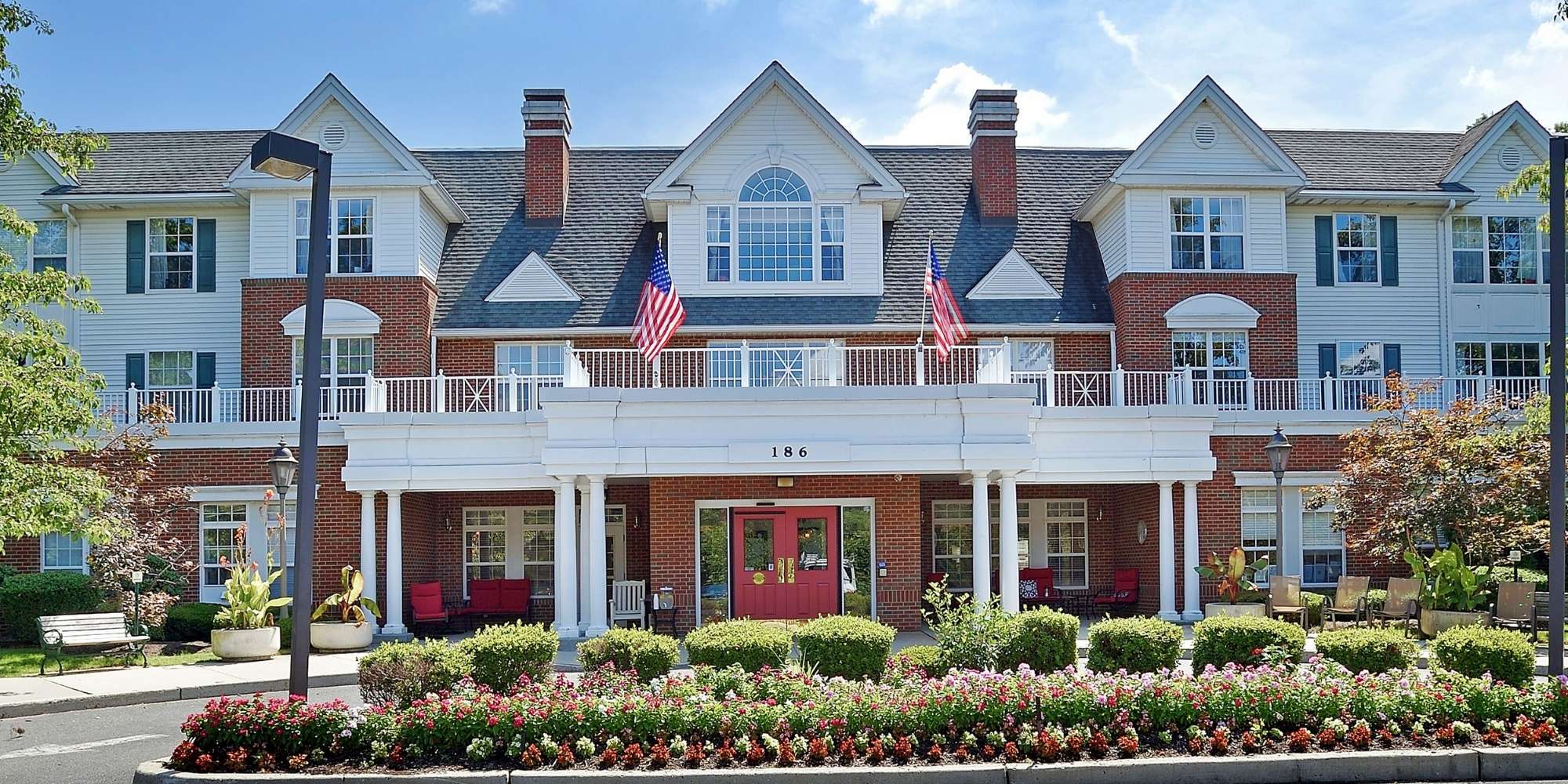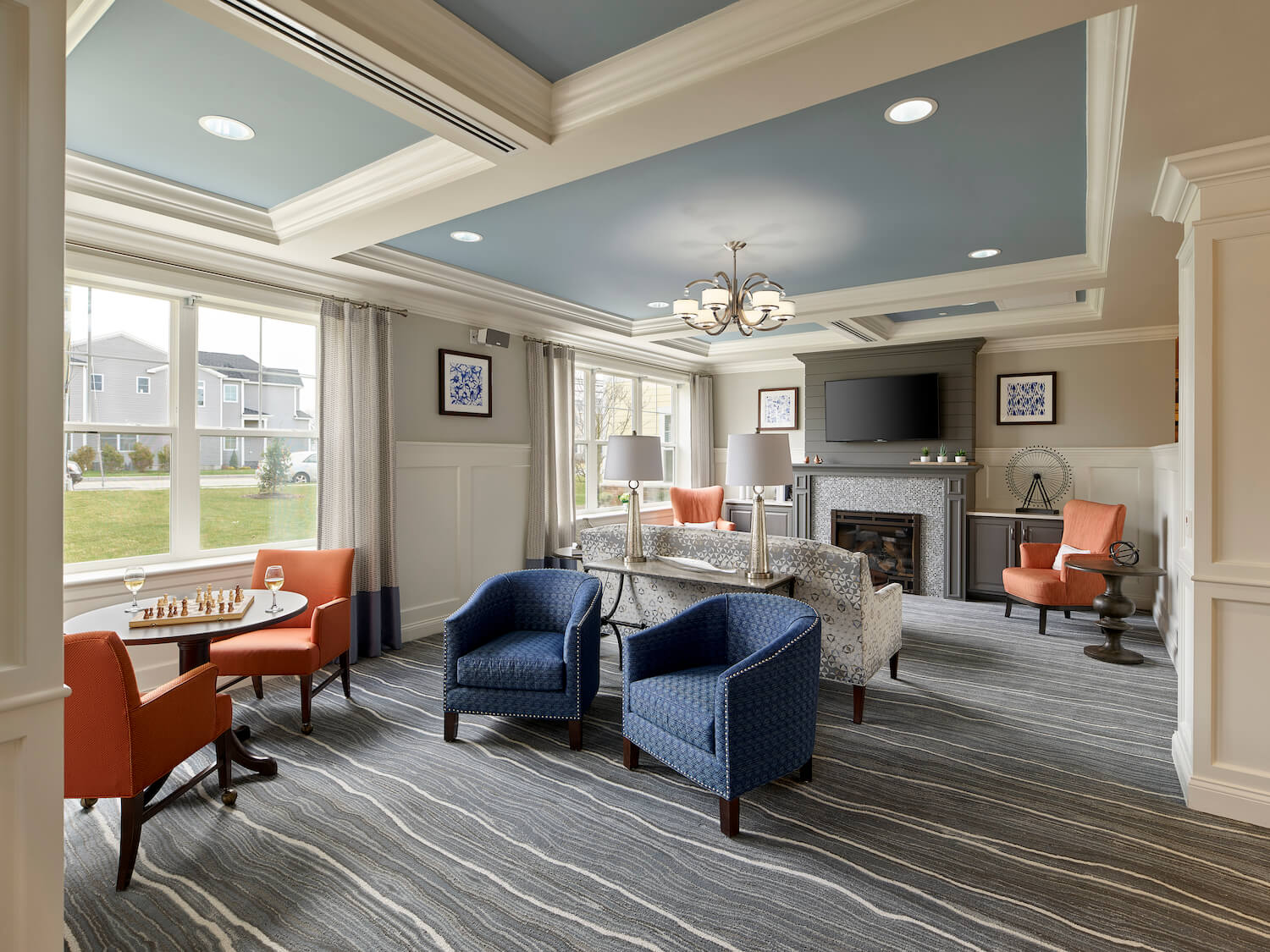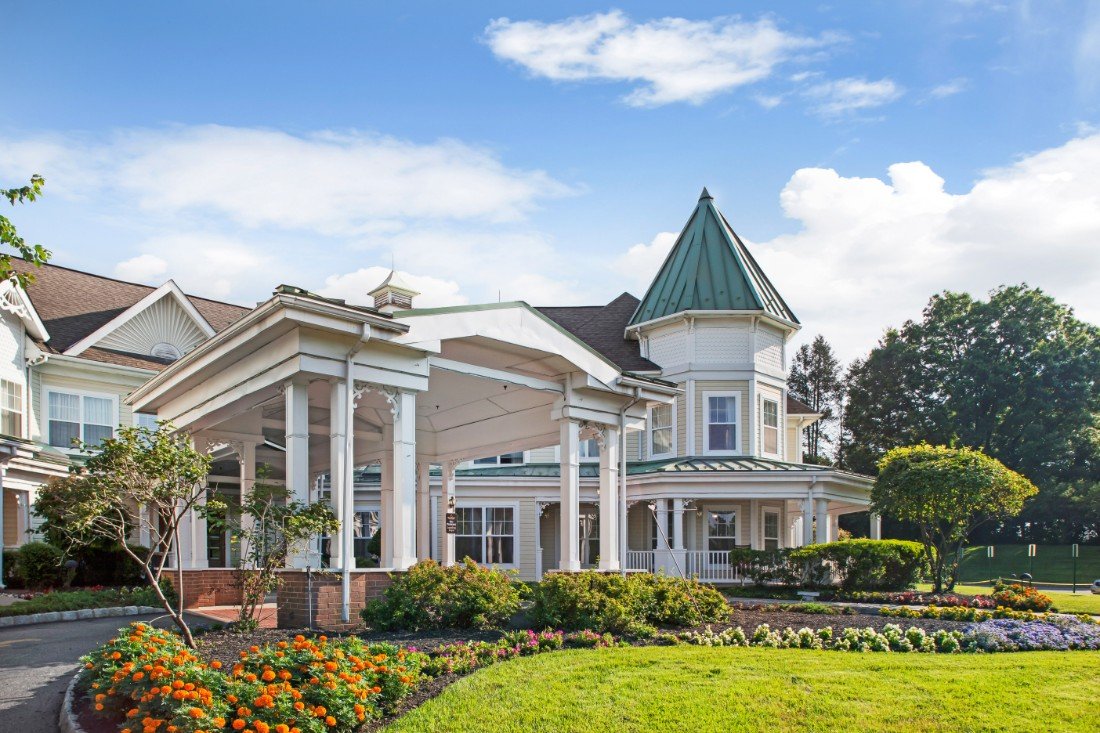
Assisted Living in New Jersey
Costs and Local Resources
Explore all that Garden State has to offer as you look for assisted living in New Jersey. One of the original Thirteen Colonies, New Jersey served a pivotal role in the American Revolutionary War, and later became an epicenter of the Industrial Revolution. With the explosive growth in the latter half of the 20th century, New Jersey became and remains a center for the turnpike, pharmaceutical, biotech, and information technology industries, to name just a few.
One of the most densely populated states, New Jersey is also one of the wealthiest and one of the most ethnically and religiously diverse in the US. Seniors looking at New Jersey assisted living communities are sure to find a perfect new home full of potential friends.
Cost of assisted living in New Jersey vs nearby states
New Jersey vs. Delaware, New York, and Pennsylvania
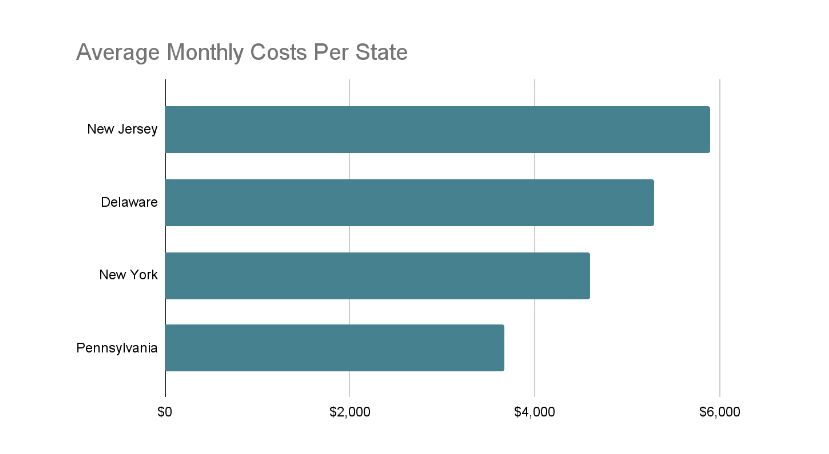
Cost of assisted living in a selection of New Jersey cities
We provided price comparisons for a few New Jersey cities below: Jackson, Marlboro, Tinton Falls and Voorhees. You'll notice at least one big discrepancy; we discuss in the next section why parts of New Jersey can be much more expensive than others for assisted living.
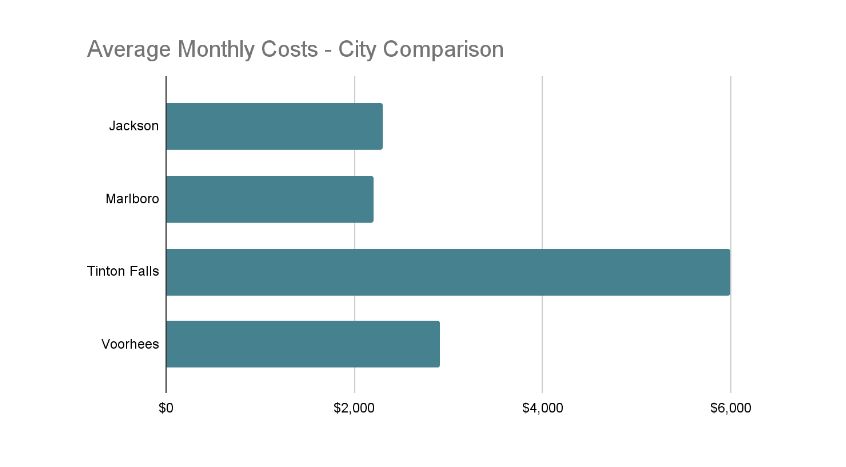
The cost of assisted living in New Jersey
Seniorly 2021 data shows that the average cost of assisted living in New Jersey is $6,627 per month. The national average is $4,057. This may seem like quite a jump in price, but remember that the national average includes numbers from across the country, which can vary wildly depending on taxes, urban vs. rural locations, and much more. New Jersey’s $6,627 is also an average: you may very well be able to find assisted living in the Garden State for less than this. This number also reflects New Jersey’s status as one of the wealthiest states in the country: senior living in this state reflects its overall cost of living, which is higher on average than most other states. Explore our assisted living listings to start comparing properties, or get in touch with one of our local advisors to get expert advice.
Assisted living communities can provide the peace of mind that comes from not worrying about home maintenance, chores, or errands, as well as help with personal grooming, eating, and other daily activities seniors might have trouble with. However, if your loved one requires nursing care, or has been diagnosed with Alzheimer's or dementia that has progressed to a certain point, they might need a skilled nursing facility/home health care, or memory care community instead. These communities (and for that matter, in-home care) might cost more in Florida than assisted living facilities, but the important thing is that your loved one’s needs are cared for in order to provide them with the best quality of life.
If your loved one currently lives in a retirement community, ask whether it is a Continuing Care Retirement Community: these senior living properties are generally designed for residents to age in place. Seniors can get the different levels of care they need, as they need them, without having to move to a different community altogether.
Overall cost of living in New Jersey
The cost of living in the United States varies greatly between states. The cost of living index is an important measure that not only tells you how expensive it will be to live in another location, but also provides the difference between one city and another. The percentage is always compared to 100.
New Jersey has a cost index of 125.1, which is higher than the national average of 104.63. The housing cost is 137, with a transportation cost of 106.5, and grocery cost of 108.7.
Financial assistance for assisted living in New Jersey
Medicaid options for New Jersey seniors
According to benefits.gov, to be eligible for Medicaid in New Jersey, you must be a resident of the state of New Jersey, a U.S. national, citizen, permanent resident, or legal alien, in need of health care/insurance assistance, whose financial situation would be characterized as low income or very low income. You must also be one of the following:
- Pregnant, or
- Be responsible for a child 18 years of age or younger, or
- Blind, or
- Have a disability or a family member in your household with a disability, or
- Be 65 years of age or older.
Non-Medicaid State assistance programs
New Jersey also has a number of special programs that are designed to help those that do not qualify for Medicaid. These programs are:
- Medical Emergency Payment Program for Aliens
- NJCEED - New Jersey Cancer Education and Early Detection Program
More ways to finance assisted living
There are several options available to finance assisted living for yourself or a loved one. Long-term care can be financed in several ways:
- Life insurance - Some life insurance policies have a provision for long-term care benefits.
- Long-term care insurance - This type of insurance is intended to cover long-term health care needs for senior care by covering costs for assisted living or long-term care communities.
- Pensions, 401K, and IRA - If you have a pension, 401k, or an IRA to fall back upon this would be a great benefit in paying for assisted living costs.
- Real Estate - Having a home is a great source of income. When it is time to move into assisted living the sale proceeds from your home can cover the costs.
- Veteran’s benefits - While the VA will not directly cover the costs of assisted living facilities, you can obtain help from the VA under the Veterans Aid & Attendance benefits. The Aid & Attendance benefits help eligible veterans and their surviving spouses to pay for assistance for activities of daily living (ADLs). Aid & Attendance benefits are often referred to by other names such as “improved pension,” “VA assisted living benefit,” or “veterans eldercare benefits.”
Free assisted living resources in New Jersey
New Jersey residents can explore state resources that can help answer your questions about certain types of benefits and how they might apply to assisted living.
Find your local Area Agency on Aging: There are multiple agencies per state, enter your zip code or city to find the one closest to you.
The New Jersey Department of Veterans Affairs may be able to help you determine if your loved one is eligible for VA benefits.
Find New Jersey Social Security offices where you can understand your benefits and get answers to your questions about claims.
Find New Jersey’s Long-Term Care Ombudsman program where you can file a complaint anonymously for issues relating to long-term care.
